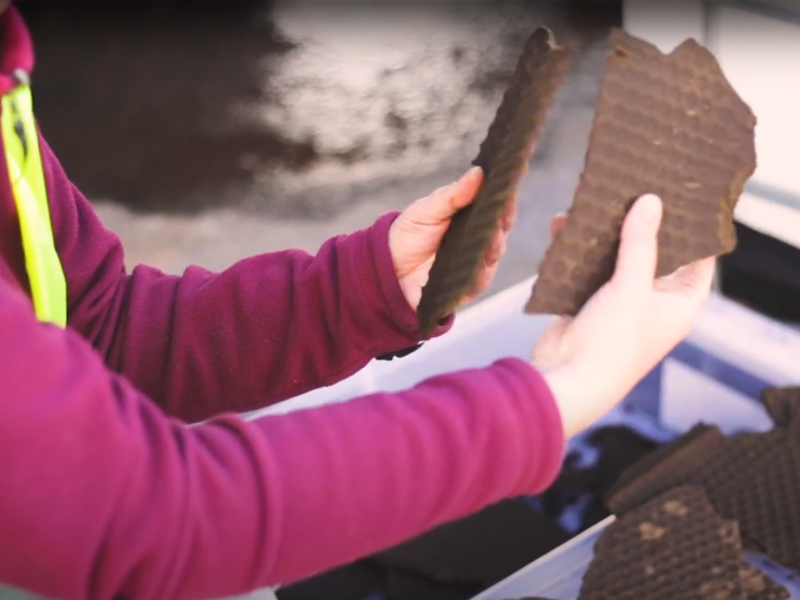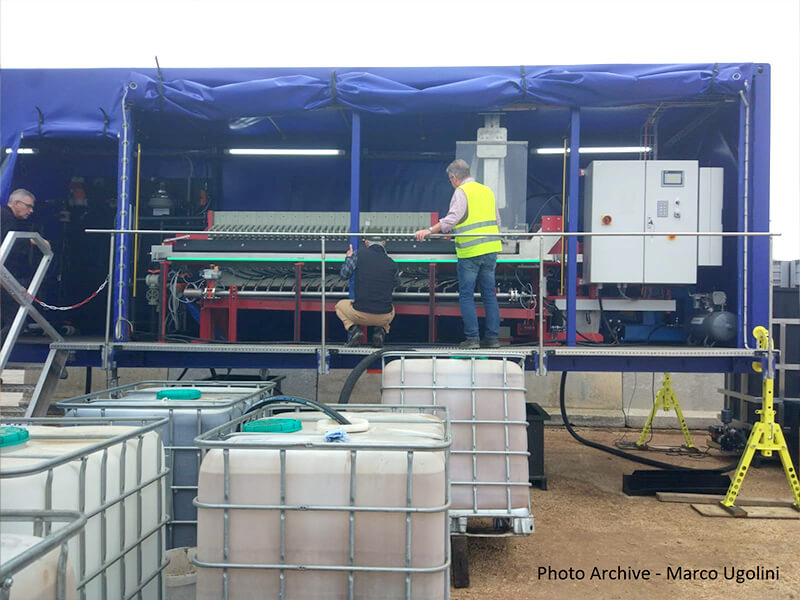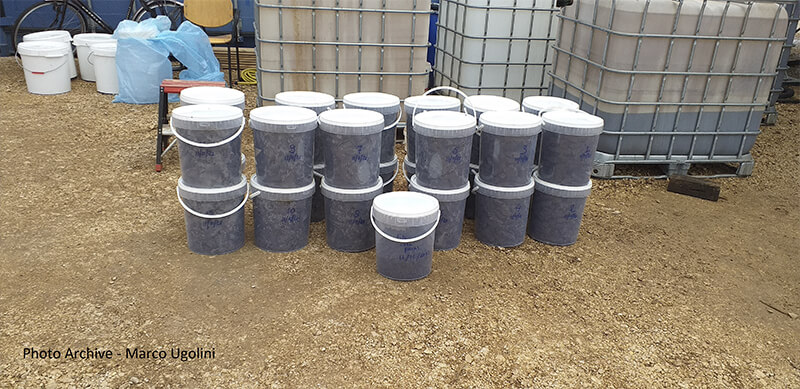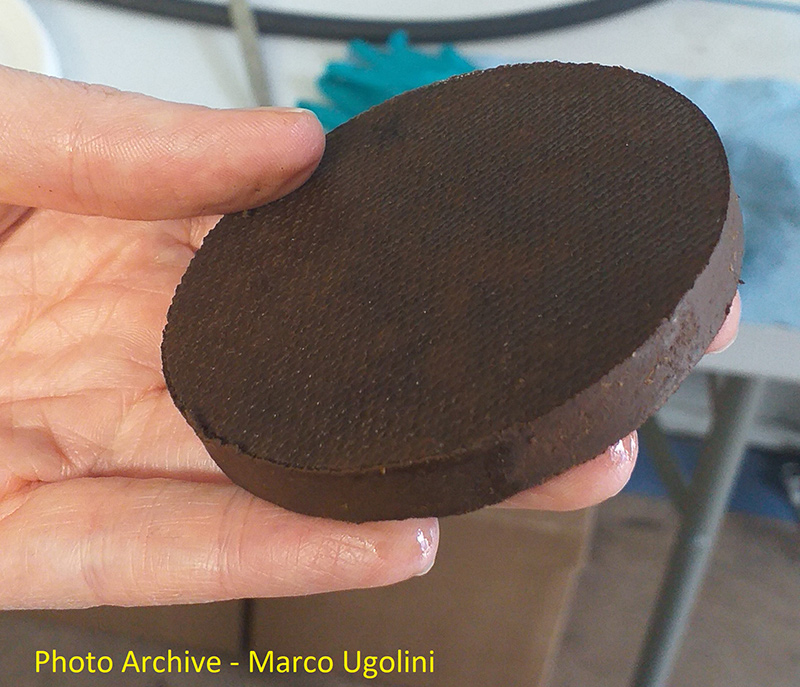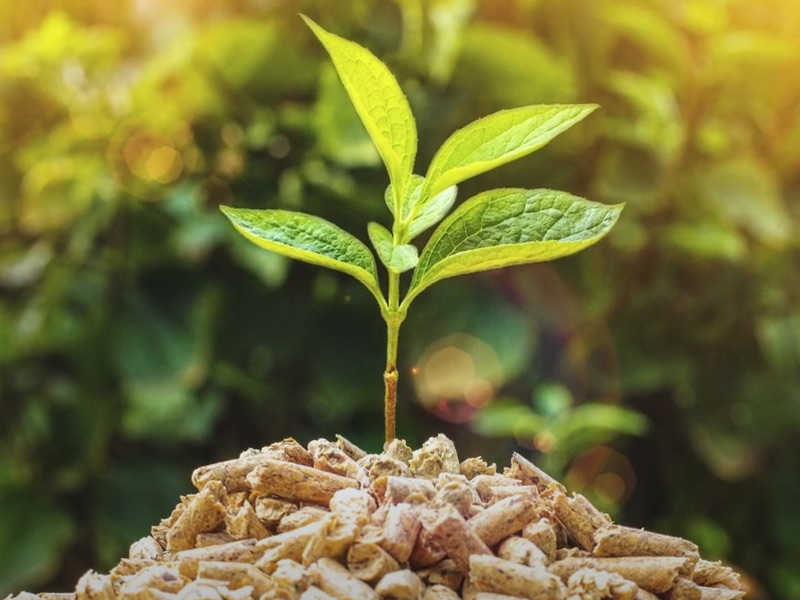Progress
LET US DESCRIBE THE WORK DONE IN PHASE 1 TO ENABLE PILOT TESTING IN THE F-CUBED PROJECT
- Representative samples of feedstock were delivered to TNO (Netherlands), where all the analysis in this stage was carried out. All selected feedstocks were characterized with standard fuel analysis and quantification of the organic content, which was necessary to evaluate processing and anaerobic digestibility. Involved partners: TNO, SWE, SKP, APPO, CFE, DELAFRUIT
- The selected feedstocks were tested under a range of hydrothermal reaction conditions to optimise the TORWASH reactor for the pilot testing. The parameters studied were dewaterability, solids settling, solid mass yield, and inorganics distribution between the solid and liquid phases after filtration. We paid special attention to Chlorine (Cl), Sodium (Na), Calcium (Ca) and Potassium (K), which are relevant for fuel quality and Nitrogen (N), Phosphorus (P) and Potassium (K), which are relevant for fertilizer applications. Involved partners: TNO
- The partners explored added-value products delivered by TORWASH, relevant to the specific industry.
- Recycling P and N from paper sludge
- Recovering low-grade oil from wet olive pomace
- Recovering terpenes from orange peels.
- The optimal process conditions for the pilot TORWASH reactor and pilot filter press, as well as the type of auxiliary equipment needed was also determined. The filterability and dewaterability of the TORWASH effluent was tested at lab scale and at LIMF, varying parameters such as filter porosity and pressure.
Preliminary Results from the F-CUBED Pilot Tests
Evaluation of potential for NPK recovery, biogas production, TORWASH® treatment of fruit & vegetable waste, and quality of pellets as a bioenergy carrier.
The preliminary results from the F-CUBED pilot tests have been submitted in relation to nutrient recovery, biogas production, the hydrothermal treatment and dewatering of fruit and vegetable waste, and the production of pellets as a bioenergy carrier from the three waste streams of paper sludge, olive pomace and orange peels.
NPK Recovery: The treated feedstocks showed specific nutrient content, mobility, and availability, providing various potential approaches for their recovery. Paper sludge, with the highest nutrient but also heavy metal content, proved to be most suitable for struvite (phosphate mineral) recovery from both the solid and liquid fractions.
The production of a struvite based mineral fertilizer from the F-CUBED process has already been shown to be feasible, and the integration of nutrient recovery to the wastewater treatment step appears very beneficial to the overall nutrient recovery process.
The high organic content of the effluents makes them an interesting option for anaerobic co-digestion, yielding additional energy, while recovering all nutrients (NPK) in the anaerobic digestate, which can then be used as organic fertilizers.
Biogas Production: Results show an anaerobic biodegradability of 62% for paper sludge, 57% for olive pomace and 77% for orange peels. In all tests, sufficient nitrogen and phosphorus were available and therefore would not need to be added in a full-scale anaerobic reactor.
The anaerobic biodegradability testing demonstrated that all feedstocks have the potential for biogas production. Estimated methane production based on the full-scale reactor designs for paper sludge, olive pomace and orange peels are 1,240, 6,540 and 990 Nm3/d (normal cubic metre per day) respectively. The generated biogas can be used as energy source for the TORWASH® process and the downstream processing steps.
TORWASH Treatment of Fruit & Vegetable Waste: Dewatering of the effluent resulted in 117 kg of dry press cake which was converted into 104 kg of pellets. For every 1000 kg of effluent, 11 kg of dry press cake was produced.
Salts such as chlorine, potassium and sodium are commonly found in biomass and must be reduced by 10 to 20 times to be within acceptable levels of thermal conversion standards. The TORWASH® reactor operates at relatively mild temperatures (150 - 250 °C) and results in fibres in the wet residues becoming brittle, allowing for more efficient dewatering and removal of salts. The bulk of the sodium and potassium was effectively removed from the solid material and a large part of the total ash content and chlorine was also removed.
The F-CUBED process was able to reduce the volume of the orange peel waste stream by 85% and achieve almost 90% moisture removal from the orange peel feedstock without applying additional chemicals or flocculation agents, and the remaining solids could be successfully converted into intermediate bioenergy carriers in the form of pellets.
Quality of Pellets as a Bioenergy Carrier: The Heat Systems indirect fired pilot kiln was used for pilot trials on the combustion of pellets made from F-CUBED’s three different feedstocks. The olive pomace pellets performed best for syngas production and the paper and orange feedstocks performed best for char production. However, all feed-types are suitable for both syngas as well as char generation.


